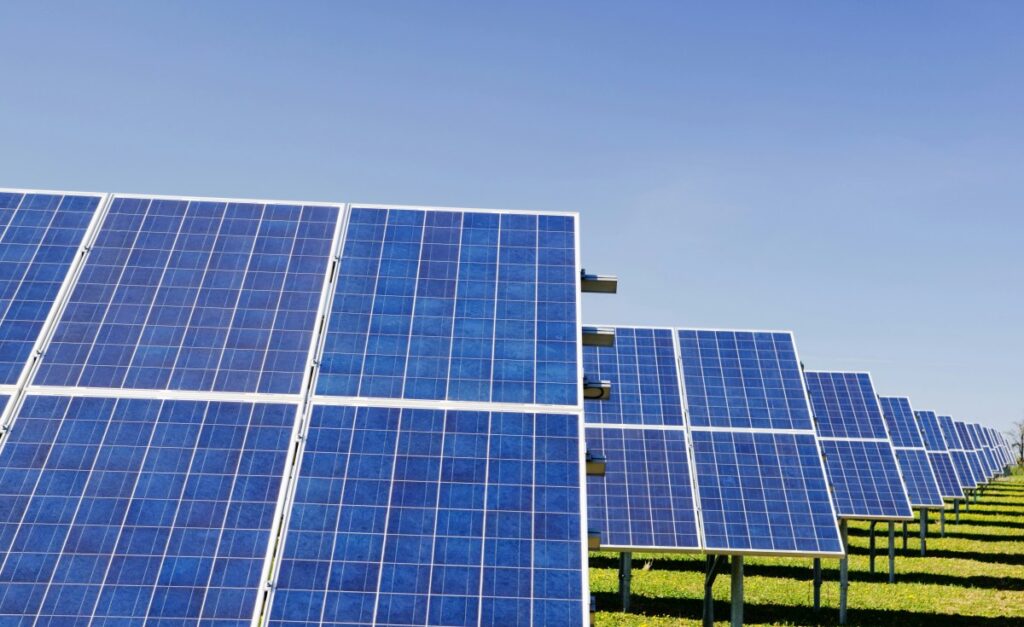Accra – Ghana has launched West Africa’s largest floating solar project and is serving as a key step towards increasing renewable energy capacity. The country aims to increase its share of renewable energy from 1% to 10% by 2030.
The pioneering 5 megawatt floating solar installation is located on the Black Volta River and was designed by a Ghanaian engineer at the BUI Power Authority (BPA). This innovative project demonstrates Ghana’s commitment to leveraging clean energy to reduce carbon footprint.
Floating solar power plants are a groundbreaking solution that utilizes solar modules in their waters to optimize land use while increasing the efficiency of solar panels.
Additionally, it helps to save water by reducing evaporation from the surface. This technology can be deployed in ponds, lakes, reservoirs, or other bodies of water.
The successful completion of this project is consistent with Ghana’s National Energy Plan, supporting the goal of increasing the penetration of renewable energy by 10% by 2030.
Kenya will build its first nuclear power plant by 2034 amid local opposition
“We have completed a 5-megawatt project and are already in the process of generating electricity,” said Peter Acheampong, Associate Director of Renewable Energy at Bui Power Authority.
Acheampong also revealed plans to expand its floating solar project. “We have plans to expand to about 65 megawatts. At BPA, our expansion efforts will be guided by the national renewable energy master plan,” he explained.
The BUI Power Authority (BPA) has made significant advances in the renewable energy sector. Before the floating solar project, BPA commissioned a solar farm in 2020, generating 50 megawatts of electricity. The two projects cost USD 48 million.
As Ethiopia struggles with the electric car revolution, the road is uneven
Other projects
These solar power plants play an important role in diversifying the energy mix in Ghana and increasing renewable energy production.
Other notable solar power plants that are continually outsourced and operated in Ghana include the Kaleo Solar Power Station (13 MW), the Laura Solar Power Station (6.5 MW), and the Nabrongo Solar Plant (2.5 MW). The three projects cost 50 million euros.
Individuals are increasingly investing in renewable energy. Helios Solar Energy has commissioned Africa’s largest rooftop solar installation. This is a 16.82 megawatt solar (PV) plant funded by the World Bank Group’s International Finance Corporation (IFC) at a cost of $17 million.
Future plans
Sign up for the AllAfrica newsletter for free
Get the latest African news
success!
Almost finished…
You need to check your email address.
Follow the instructions in the email you sent to complete the process.
error!
There was a problem processing the submission. Please try again later.
The Bui Power Authority (BPA) has designated six locations for future solar projects: Bawku, Yendi, Tumu, Sawla, Buipe and Zebilla are all in the northern part of the country.
Minister of Energy and Green Transition, John Zinapole, strategically focused on renewable energy in Ghana, highlighting the development of solar, wind and mini-hydro projects to meet the country’s growing energy needs.
“To support the growing economy and promote sustainable development, Ghana is prioritizing solar, wind and minihydro projects as part of its broader energy transition plan,” said Zinapole.
He emphasized that increasing renewable energy consumption is essential to lower the country’s carbon footprint, improve energy access and promote industry growth.
Illegal Mining Crisis in Ghana: Environmental Destruction, Clashes and Calls for Action
“We will establish a Renewable Energy and Green Transition Fund, which will support the research and development of residential cultivating green technology, provide solar-powered solutions to various sectors, and ease the financial burden of electricity tariffs on state institutions.”
He added, “Solar, wind and minihydro present a great opportunity for Ghana to meet its energy needs while minimizing the environmental impact of fossil fuels.” He also said Ghana is suitable to exploit these resources, with abundant solar energy possibilities, vast coastlines that are ideal for wind power generation, and multiple rivers suitable for mini-hydro power generation.

